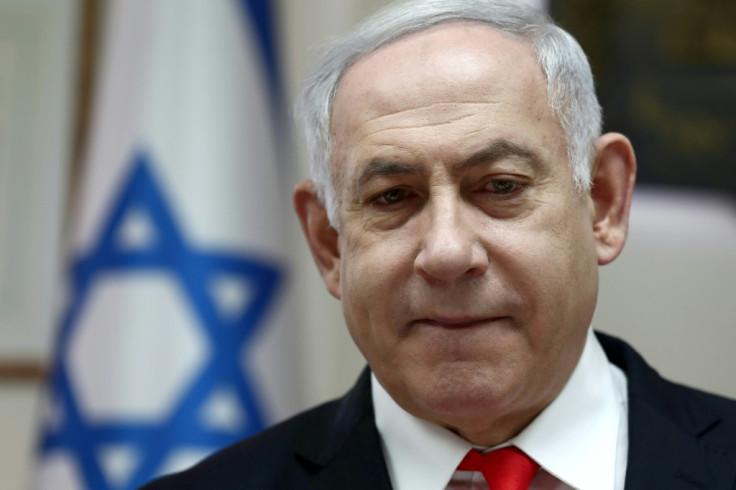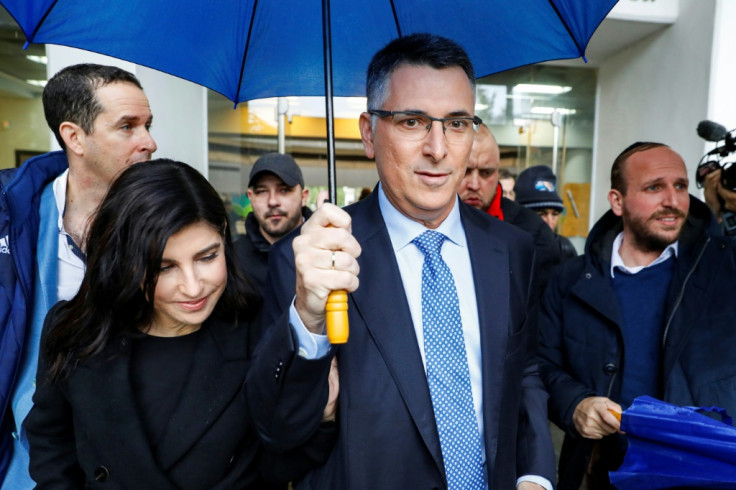Israel's Netanyahu wins ruling party leadership vote
With all votes counted, Likud announced early Friday that Netanyahu had secured 72.5 percent, with Saar winning 27.5 percent.
Embattled Israeli Prime Minister Benjamin Netanyahu declared a "huge" victory Friday, after winning a leadership primary that ensures he will lead his right-wing Likud party into March elections.
Israel's longest-serving premier, who faces a corruption indictment and a third general election in twelve months, was expected to beat rival Gideon Saar but the convincing margin of victory strengthened his position in the party he has dominated for 20 years.
With all votes counted, Likud announced early Friday that Netanyahu had secured 72.5 percent, with Saar winning 27.5 percent.
"A huge win! Thank you to Likud members for their trust, support and love," Netanyahu tweeted.

"With God's and your help, I will lead Likud to a big victory in the upcoming elections and we will continue to lead the State of Israel to unprecedented achievements," he added.
Around 57,000 Likud members cast their ballots across the country throughout Thursday a little less than 50 percent of those eligible.
Saar, a former minister seen as to the right of Netanyahu, campaigned on the basis that the leader was no longer able to win elections after deadlocked polls in April and September.
"I am content with my decision to have stood. Those who are unwilling to take a risk for what they believe in will never succeed," Saar tweeted.
"My colleagues and I will stand behind (Netanyahu) in campaigning for the Likud's success," he added.

He announced his leadership challenge last month after Israel's attorney general indicted the prime minister for fraud, bribery and breach of trust.
Netanyahu, 70, denies the allegations, accusing the police, prosecutors and the media of a witch hunt.
Stephan Miller, a pollster who has worked on multiple Israeli campaigns, said Netanyahu had campaigned harder than ever before to defeat Saar.
Netanyahu held multiple campaign events a day in different parts of the country, while on Thursday his Facebook page broadcast live video of him phoning supporters.
In the campaign's most dramatic moment on Wednesday, Netanyahu was rushed off stage at a rally in Ashkelon in southern Israel after a rocket was fired from the nearby Palestinian enclave of Gaza.
"His job was on the line and he fought to keep it successfully," Miller said.
Netanyahu's downfall has been predicted multiple times since he was elected for a second term in 2009, but he has defied expectations and beaten off multiple potential rivals.
He will likely remain prime minister at least until new elections on March 2.
Likud and the centrist Blue and White were near neck-and-neck after polls in March and September, with neither able to form a coalition under the country's proportional system.
Early polls indicate that the third round could again be a stalemate.
In the short term, attention will now turn to Netanyahu's legal woes.
Netanyahu is accused of corruption in three separate cases, ranging from receiving illegal gifts worth thousands of dollars to offering to change regulatory framework in exchange for positive media coverage.
On Tuesday the country's supreme court is expected to hold a hearing on whether a prime minister that has been indicted can form a government.
Under current understanding of the law, a prime minister is only forced to step down once convicted with all appeals exhausted.
Netanyahu also has until January 1 to decide if he will ask parliament for immunity.
Gayil Talshir, a professor of politics at the Hebrew University in Jerusalem, said the result could embolden Netanyahu in his campaign against the charges.
"He is going to argue that the people chose him and not the mechanisms and the judiciary," Talshir said.
"The big game for Netanyahu is immunity and for that he needs 61 votes (in the 120-seat parliament)," she said.
Copyright AFP. All rights reserved.

This article is copyrighted by International Business Times, the business news leader





















